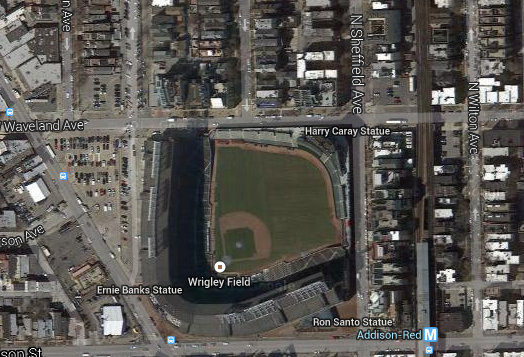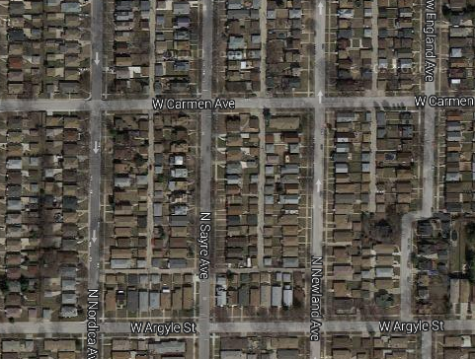 I dream of Wrigley. All the time. More and more often. I grew up in Chicago and went to games at Wrigley Field all season long, season after season, and even though I left Chicago 30 years ago, Wrigley Field has never left me. The one-hundredth anniversary of the opening of Wrigley Field last month got me wondering why.
I dream of Wrigley. All the time. More and more often. I grew up in Chicago and went to games at Wrigley Field all season long, season after season, and even though I left Chicago 30 years ago, Wrigley Field has never left me. The one-hundredth anniversary of the opening of Wrigley Field last month got me wondering why.
I suppose it has something to do with the 1969 season. Then again, what doesn’t? I turned 11 that summer, so the 1969 roster would have been a formative one for me anyway. But as baseball fans know, there’s another reason that season would leave a permanent mark on a young fan. The title of a book on my “Chicago shelf” says it all: The Cubs of ’69: Recollections of the Team That Should Have Been.
I took the book down the other day and opened it to the table of contents, and there they were again: the boys of my summer. Twenty years after the ’69 season, sportswriter Rick Talley visited the members of the team and got them to relive that season; when the book came out, I couldn’t wait to relive it with them—as if the day-to-day memories hadn’t long ago burrowed into my neurons, hibernating there until the night they would awaken and mobilize: sleeper cells, literally. My friends and I can still rattle off the batting order from memory: Don Kessinger, shortstop, leading off; then second-baseman Glenn Beckert; left-fielder Billy Williams; Ron Santo at third base; Ernie Banks at first; Jim Hickman in right field; one of several journeymen outfielders (but mostly Don Young) in center; catcher Randy Hundley batting eighth; and then the starting pitcher—Ferguson Jenkins or Bill Hands or Ken Holtzman.
Kenny Holtzman! I was at the no-hitter he threw that year. August 19. You could look it up, but I don’t have to.
That day, the Cubs were eight games ahead of the New York Mets in the National League East. Six weeks later they finished the season eight games behind the Mets. The ’69 Cubs had five future Hall of Famers in their dugout—Banks, Jenkins, Santo, and Williams, plus manager Leo Durocher—and all they had to show for it in October was an epic collapse. 
Even so, my dreams of Wrigley aren’t nightmares. In recent years, the Wrigley Field where I still go to games has changed. It’s been torn down and relocated to the part of Chicago where I grew up, a working-class, elbow-to-elbow bungalow kind of neighborhood—the unhip opposite of the actual Wrigleyville on the North Side. In real life, the house where I grew up is empty now. My parents are gone. My friends from the neighborhood have all moved away, mostly to the suburbs or, like me, another city. I don’t have much reason to go home any more, except, apparently, in my dreams.
I know my Wrigley Field isn’t really Wrigley Field. The dimensions are off. The sight lines aren’t good. Once in a while my view of the field is blocked for the whole game. But forty-five years later we’re all still here, the players and I, because who among us doesn’t sometimes lie awake at night, asking ourselves if we were ever on a team that should have been?
One thought on “I Dream of Wrigley”
Comments are closed.